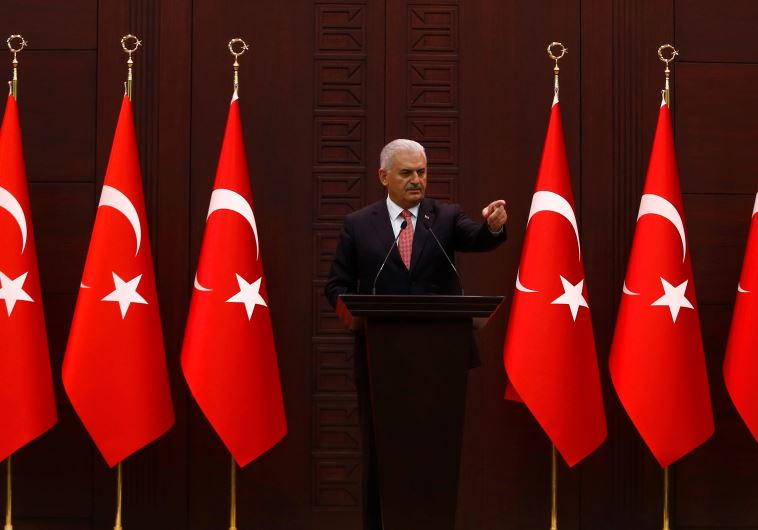Talking Turkey: The Israel deal and the retreat from neo-Ottomanism
The rapprochement with Israel is part of a broader retreat from the neo-Ottomanism that until recently guided Turkish foreign policy.
 Turkey's Prime Minister Binali Yildirim addresses the media in Ankara, Turkey, June 27, 2016
Turkey's Prime Minister Binali Yildirim addresses the media in Ankara, Turkey, June 27, 2016